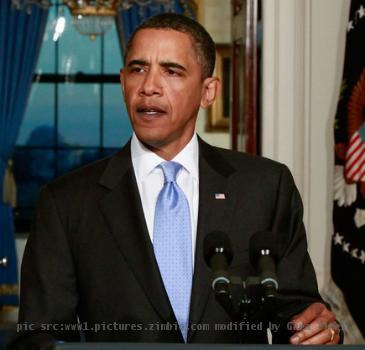GOP sees prospects to gain governorships, especially in Midwest, Great Lakes region
By Liz Sidoti, APMonday, May 31, 2010
GOP upbeat about gubernatorial prospects, Midwest
WASHINGTON — A political tail wind boosting their prospects, Republicans have significant opportunities to gain governorships across the Great Lakes and Midwest this fall. But, in a wrinkle to their coast-to-coast victory plan, the GOP is struggling with internal fights in a handful of primaries, giving Democrats hope of snatching a few big states.
The outcome of a whopping 37 races will determine control of several heavily populated states ahead of the every-decade redrawing of congressional and legislative boundaries. The census decides who will have the advantage in the quest for control of statehouses and Congress over the next 10 years.
And many governors elected in November will preside over states certain to loom large in President Barack Obama’s likely 2012 re-election bid. They include swing states with huge numbers of electoral votes needed to win the White House, such as Pennsylvania, Ohio and Florida.
Five months before the election, primary contests that will set the November stage are well under way.
Alabama and New Mexico are up Tuesday. California and Nevada are among the states that vote June 8 in races that pit Republican incumbents or establishment-backed candidates against hopefuls who are more conservative or enjoy tea party support. South Carolina also chooses its GOP nominee next month. And the victor likely will be the next governor given the slim chances of a Democratic victory in the Republican-leaning state.
Mississippi Gov. Haley Barbour, a potential 2012 presidential challenger to Obama, leads the committee working to elect GOP governors. He predicts major victories: “This cycle is so much more important than usual because of the way the Obama administration and the Democratic Congress have made this huge lurch to the left. The American people are scared of all the spending.”
With a fundraising advantage, a favorable political landscape and victories in New Jersey and Virginia last fall, Republicans are aiming for the GOP to emerge from November controlling at least 30 states. They argue that it would make it hard for Obama to win re-election.
Delaware Gov. Jack Markell, the chairman of the Democratic Governors Association, suggests the GOP’s take has some merit, saying in a recent fundraising solicitation: “We must stop the GOP from winning 30 governors’ seats, and in turn, stop them from defeating President Obama and taking away our Democratic majorities.”
Controlling 26 states to the GOP’s 24, Democrats are on defense.
They’re operating in a difficult environment — an economic recession that’s forced governors to cut services or raise taxes or both — to make up budget shortfalls. And traditionally the party that controls both the White House and Congress loses seats. Issues like immigration also could affect the outcome.
Democrats privately say they likely will lose states; Republicans are virtually assured of winning Democratic-held open seats in Kansas, Tennessee, Oklahoma and Wyoming. And polls show Iowa Gov. Chet Culver in such serious trouble that he’s widely expected to lose to former Gov. Terry Branstad, favored in the GOP primary.
Republicans have mounted similarly strong challenges to other Democrats across the Midwest and the Great Lakes — and Democrats acknowledge that states in that region will be among the toughest to win given that they have suffered the brunt of the recession.
Many Democrats doubt they’ll hold onto auto-dependant Michigan, which has the nation’s highest unemployment rate at 14 percent in April.
And they have their work cut out for them in: Ohio, where Democratic Gov. Ted Strickland faces former GOP Rep. John Kasich; Pennsylvania, where Democrat Dan Onorato, the Allegheny County chief executive, faces GOP Attorney General Tom Corbett to succeed the outgoing Democratic Gov. Ed Rendell; and Wisconsin, where Democratic Gov. Jim Doyle is retiring. Milwaukee’s Democratic mayor, Tom Barrett, will run against whoever emerges from a crowded GOP primary in September.
Republicans also are making a play for the scandal-scarred but Democratic-leaning Illinois but they say it will be hard for Republican state Sen. Bill Brady to win even though Democratic Gov. Pat Quinn was the deputy of disgraced former Gov. Rod Blagojevich. And the GOP is trying to beat back Democratic efforts to win in Minnesota, where Republican Gov. Tim Pawlenty is leaving office presumably to run for president.
For all the dreariness, there are bright spots for Democrats.
Chief among them are GOP primaries in a handful of states that could result in Republicans nominating a tea party-backed conservative or a moderate battered and broke from the primary.
In California, former eBay CEO Meg Whitman, backed by Republicans like Newt Gingrich, is being dragged to the right by Steve Poizner, particularly on taxes and immigration, in a race that’s grown increasingly nasty. And in Florida, Attorney General Bill McCollum is tangling daily with conservative businessman Rick Scott, a health care industry executive who made national headlines by opposing Obama’s health care law.
Nevada’s conservative Republican Gov. Jim Gibbons, whose job approval ratings are low following a messy, public divorce, may not make it through his primary — and that’d be just fine for GOP leaders who think he’d lose in the fall. Republican judge Brian Sandoval is favored to beat Gibbons; the victor will face Democrat Rory Reid, the son of embattled Senate Majority Leader Harry Reid.
And in Colorado political novice Dan Maes fared better at the state’s convention than establishment choice Scott McInnis, a former congressman. The GOP nominee will face Denver Mayor John Hickenlooper in the fall.
Elsewhere, Massachusetts Gov. Deval Patrick’s standing has improved markedly, and Democrats are virtually assured of holding New York after successfully recruiting Andrew Cuomo.
Democrats also hope to pick up Rhode Island and Vermont, and they’re making serious plays for GOP-held seats in Arizona, Connecticut, Georgia, Hawaii and Texas. Republicans, in turn, are aggressively going after Democratic-controlled states of Maine, Maryland, New Hampshire, New Mexico and Oregon.
Tags: Barack Obama, North America, Political Fundraising, Political Issues, Political Organizations, Political Parties, Political Scandals, Recessions And Depressions, United States, Washington





